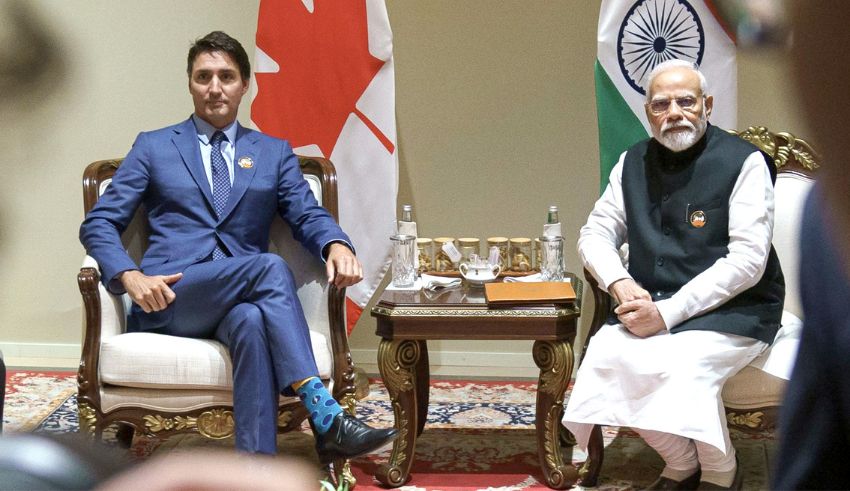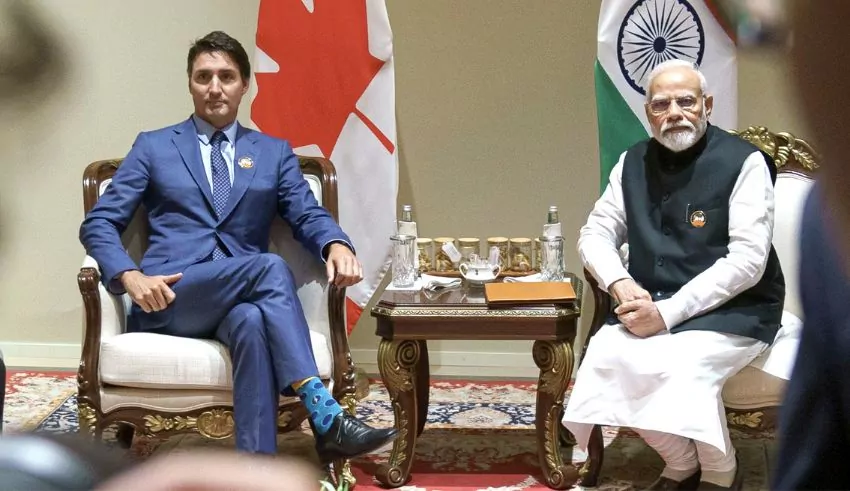

(C) OpIndia
India is in the spotlight of “Five Eyes Countries” after intelligence zeroed on New Delhi agents for the killing of Hardeep Singh Nijjar, a pro-Khalistan leader and Canadian citizen. The allegation by Canadian Prime Minister Justin Trudeau has transformed into a diplomatic nightmare for India.
And India expelling Canada’s Station chief for intelligence has raised more eyebrows and questions that New Delhi won’t be able to answer. Moreover, this also reveals that governments are keeping an eye on countries and their people around the world.
The killing of Hardeep Singh Nijjar has brought the so-called Five Eyes to the surface once again. It’s a private-intelligence collaboration between five countries. Basically, it’s an intelligence network that was established post-World War II between the United States, Canada, the United Kingdom, Australia and New Zealand – English speaking countries.
Experts describe this alliance as an intricate web of global intelligence that defy geopolitical landscapes. In the era of artificial intelligence and rapidly advancing technology, Five Eyes is about surveillance and information sharing – and this continues to shape the respective countries national security.
There are similar alliances all over the world – Nine Eyes, and Fourteen Eyes. The Nine Eyes is made up of France, Demark, the Netherlands and Norway with the Five Eyes, while Fourteen Eyes comprises the Nine Eyes, Belgium, Germany, Italy, Spain and Sweden.
So what does this diplomatically mean for India? New Delhi was already on a downturn with Canada. To save face, the Indian External Affairs Ministry has countered Trudeau’s allegation by accusing Canadian diplomats of “anti-India” activities. But the Canadian prime minister has highlighted “violation of the international rule of law”, and of Canada sovereignty.
Meanwhile, Five Eyes member Australia, also a member of Quad grouping with Japan and India, says it’s concerning. Penny Wong, Australian Foreign Minister, said they are monitoring the developments closely with partners. “I think the Indian diaspora has a range of views, and you know, we have made clear in relation to democratic debate in Australia that the peaceful expression of different views is a key part of Australia’s democracy.”
She added that the sovereignty of all countries and the rule of law should be respected.
NextRise 2025-the biggest startup and tech event in Asia-is ready to take place in Seoul on June 26-27 at COEX,…
On this reunion occasion marking 20 years after their debut, the anticipation of the fans seems to be reaching greater…
South Korean boy band RIIZE is returning to Singapore on January 24, 2026 as part of their “RIIZING LOUD” Asia…
Experience Japan’s longest running all-night rock festival, RISING SUN ROCK FESTIVAL 2025 in EZO, with incredible acts, a wealth of…
United States Immigration and Customs Enforcement conducted audits of three Denver cleaning companies, leading to more than $8 million in…
Cricket fans, rejoice! The Olympic Council of Asia (OCA) has confirmed that cricket will be part of the 2026 Asian…
This website uses cookies.
Read More